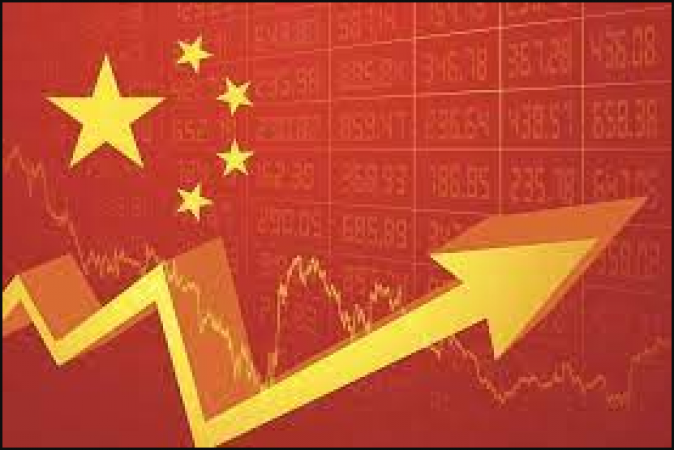
Beijing: Despite hopes of a change in Beijing's zero-Covid policy, investors should not chase high-flying Chinese stocks as market fundamentals are still weak, according to JP Morgan private bank. Short covering "primarily drove the recent rebound."
Hopes and signs of a change in Beijing's zero-Covid policy and a crackdown on the real estate market have fueled a US$769 billion rally in Hong Kong's stock market over the past three weeks. Since the end of October, the CSI 300 index of onshore shares rose 8.4 percent while the Hang Seng index rose 22.5 percent.
Bank of America's largest private banking division has so far been hesitant to declare a "turning point" regarding Chinese stocks. A surge in cases in southern Guangdong province will keep China's soft stance on testing at zero-Covid, it said.
Also Read: iPhone shipments and holiday gifts are in danger due to the Zero-Covid conundrum
It was added that the policy support for the real estate market is unlikely to lead to a rapid recovery in home sales or a significant increase in corporate earnings.
In a report released Friday, investment strategists from Asia including Alex Wolf and Timothy Fung said they "would not advise fundamental investors to chase this rally." Given the technical nature of this rebound, momentum traders should place strict stop-losses. While short sellers begin to restock their positions, strategic traders are likely to lock in profits.
The outlook could dampen new market optimism from analysts and money managers including Goldman Sachs and Allianz Global Investors.
Although official reports indicated that home sales and retail spending were not encouraging this quarter, they presented an upbeat assessment of market prospects.
The private bank, a unit of JPMorgan's asset and wealth management division that oversees US$3.8 trillion in client assets, warned that fundamental investors "may question the effectiveness of policy and China's economic slowdown".
He added that if expectations are not met in a few months, the market is likely to fall once again. The Hang Seng index experienced its biggest decline in two weeks in the morning. fell 3% to 17,457.29 as of 9.50 a.m. local time on Monday. The Shanghai Composite index fell 1.2% while the Teck index fell 3.9%.
The MSCI China Index's year-end target for private banks is 50-53, down from 59 on Friday, suggesting modest downside in the near term. According to last week's report from Goldman, the index gained 4.2% last week, and over the next 12 months, Goldman projects an additional 19% growth.
Also Read: No prospect of recession India: Niti Aayog VC
China pledged earlier this month to reduce the negative economic effects of its COVID-19 containment by easing quarantine rules and increasing flight capacity.
Additionally, it introduced new stimulus programs to support the struggling real estate market, which discouraged investors from interpreting this as a sign that the economy was about to reopen.
However, JPMorgan Pvt Bank warned that the process would be difficult. China's State Council last week urged local officials to refrain from "irresponsibly lax" COVID-19 measures as the country battles the country's worst outbreak in six months by flouting rules.
According to a report published last week by analysts at Beijing-based consulting firm Trivium China, the implementation of updated Covid policies has been a "mess" on the ground.
It warned that chaotic implementation of the new policy changes could lead to additional outbreaks that would require longer lockdowns to contain.
According to JP Morgan, financial institutions will need some time to lend support in light of the risks to the housing sector. Before they are implemented, the bad numbers are probably going to persist.
Since these measures focus more on supply than demand, it is challenging to predict how well they will encourage domestic purchases.
Demand is still weak, and contracted property sales in China will continue to decline by 10% to 15% through the end of 2023, according to a Moody's report.
Also Read: Rail strike in December might put American economy in jeopardy.
According to strategists at JP Morgan, "the recent rally is in line with our expectation and remains technical in nature driven primarily by short covering." "We don't see money meaningfully going back to China for a long time,"